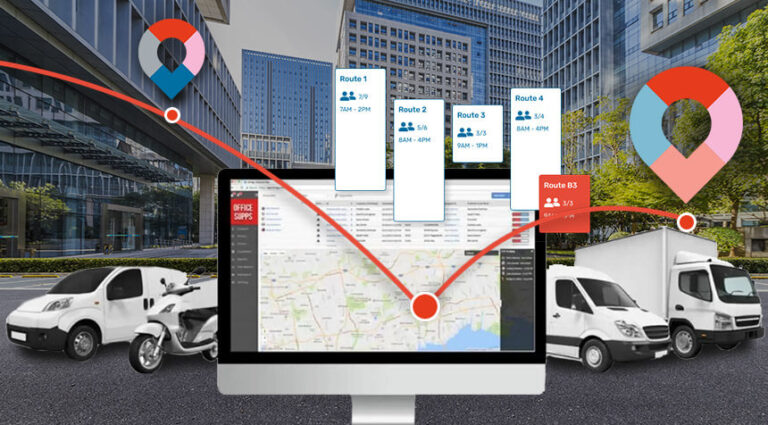In today’s fast-paced world, the demand for efficient and reliable after hours dispatch service has become increasingly vital for businesses across various industries. As companies strive to maintain seamless operations around the clock, the integration of advanced technology has emerged as a key driver of success. This article examines the latest technology trends that are revolutionizing after-hours dispatch services, including automation, artificial intelligence (AI), machine learning, and real-time data analytics, more details: https://fleet.care/services/dispatch-services/.
The continuous evolution of these technologies ensures that businesses can adapt to growing demands while improving service delivery. With competition rising, staying ahead of these trends is no longer optional but essential for long-term success.
Automation in Dispatch Services

Automation is at the forefront of transforming after hours dispatch services, streamlining processes that were once manual and time-consuming. By automating routine tasks such as scheduling, route planning, and communication with field personnel, these services can significantly reduce human error and increase operational efficiency. Automated systems ensure that requests are handled promptly, enhancing service reliability and freeing up human resources to focus on more complex issues that require personal intervention.
Artificial Intelligence and Machine Learning
AI and machine learning are powerful tools that are reshaping the landscape of after hours dispatch services. These technologies enable predictive analytics, which helps dispatch centers anticipate demand fluctuations and optimize resource allocation. AI-driven chatbots and virtual assistants can handle customer inquiries and service requests, providing instant support and improving response times. Machine learning algorithms continuously analyze data to refine processes and enhance decision-making, ultimately leading to more accurate and effective dispatch operations.
AI can identify patterns in past data, enabling these services to predict and prevent potential service disruptions. The adaptability of AI systems allows them to evolve alongside changing business needs, ensuring continued efficiency and relevance.
Real-Time Data Analytics
Real-time data analytics is another critical trend driving innovation in after-hours dispatch services. By leveraging real-time data, dispatch centers can monitor and adjust operations on the fly, responding swiftly to changes in demand or unexpected events. This capability allows for dynamic scheduling and routing, minimizing delays and ensuring timely service delivery. Real-time analytics also provide valuable insights into performance metrics, enabling service providers to identify areas for improvement and make data-driven decisions to enhance service quality.
The Role of Cloud Technology in Dispatch Services

Cloud technology is playing an increasingly important role in after-hours dispatch services. By migrating dispatch systems to the cloud, businesses can ensure secure and scalable operations. Cloud-based platforms offer enhanced accessibility, allowing dispatchers to manage operations remotely from any location with an internet connection. This flexibility ensures business continuity even in times of disruption, such as during extreme weather events or system outages. Additionally, cloud technology supports the integration of third-party applications, making it easier for these services to adopt new technologies like AI and machine learning without requiring costly infrastructure investments.
Enhancing Customer Interaction with Digital Platforms
Digital platforms have transformed how dispatch services interact with customers, providing a streamlined and efficient way to manage service requests and inquiries. Mobile applications and online portals now allow customers to book services, track dispatches, and receive real-time updates. These platforms not only improve customer experience but also reduce the workload on dispatch centers by automating repetitive communication tasks. Furthermore, integrating digital platforms with AI-powered chatbots and automated notifications ensures customers receive accurate information, reducing the need for manual intervention.
Predictive Maintenance in After-hours Dispatch
Predictive maintenance is a game-changer for after-hours dispatch services, particularly for industries relying on vehicles or machinery. By utilizing IoT (Internet of Things) sensors and real-time data, dispatch services can monitor the condition of assets in real time and predict when maintenance is required. This proactive approach prevents unexpected breakdowns and ensures that resources are available when needed. Predictive maintenance also reduces downtime, leading to better service reliability and operational efficiency, key components in maintaining a competitive edge.
Cybersecurity Challenges and Solutions

As after-hours dispatch services become increasingly reliant on digital solutions, cybersecurity is a growing concern. Dispatch systems handle sensitive data, including customer information and business-critical operations. Cyberattacks can disrupt services, causing significant operational and financial losses. Dispatch service providers must invest in robust cybersecurity measures, such as encryption, multi-factor authentication, and regular security audits, to protect their systems from malicious threats. Implementing comprehensive security protocols ensures that businesses can maintain customer trust and avoid costly service disruptions.
Benefits of Adopting Technological Solutions
The adoption of automation, AI, and data analytics in after hours dispatch services offers numerous advantages. These technologies improve operational efficiency by reducing manual workloads and optimizing resource management. Enhanced accuracy in dispatch operations leads to better customer experiences, with quicker response times and more reliable service. Additionally, the insights gained from data analytics support strategic planning and continuous improvement, helping dispatch service providers stay competitive in a rapidly evolving market.
The Future of Dispatch Services

Looking ahead, the future of after-hours dispatch services will be shaped by further technological advancements. The integration of 5G technology is expected to enhance communication between dispatch centers and field personnel, enabling faster response times and more efficient operations. Additionally, the continued evolution of AI will bring about more advanced predictive analytics, allowing dispatch services to anticipate trends and make better decisions in real-time. Autonomous vehicles and drones may also play a role in future dispatch services, reducing human intervention and further improving efficiency.
Conclusion
In conclusion, the integration of advanced technology in after-hours dispatch services is transforming the way businesses operate, providing them with the tools to deliver superior service around the clock.
By embracing automation, AI, machine learning, and real-time data analytics, dispatch service providers can achieve greater efficiency, accuracy, and customer satisfaction.
These technological advancements are not only enhancing current operations but also paving the way for future innovations in the industry. As businesses continue to adapt to an ever-changing landscape, staying informed on these trends will be crucial to maintaining a competitive edge.

